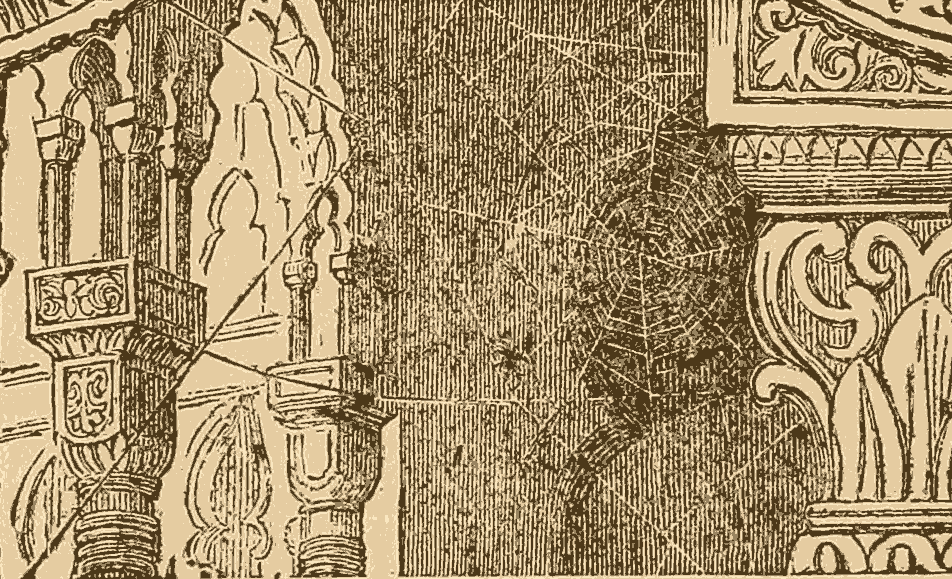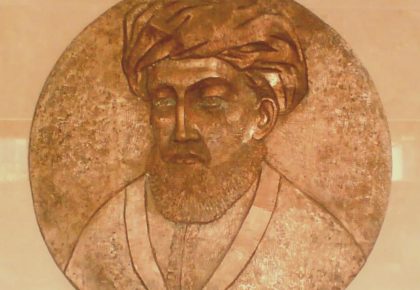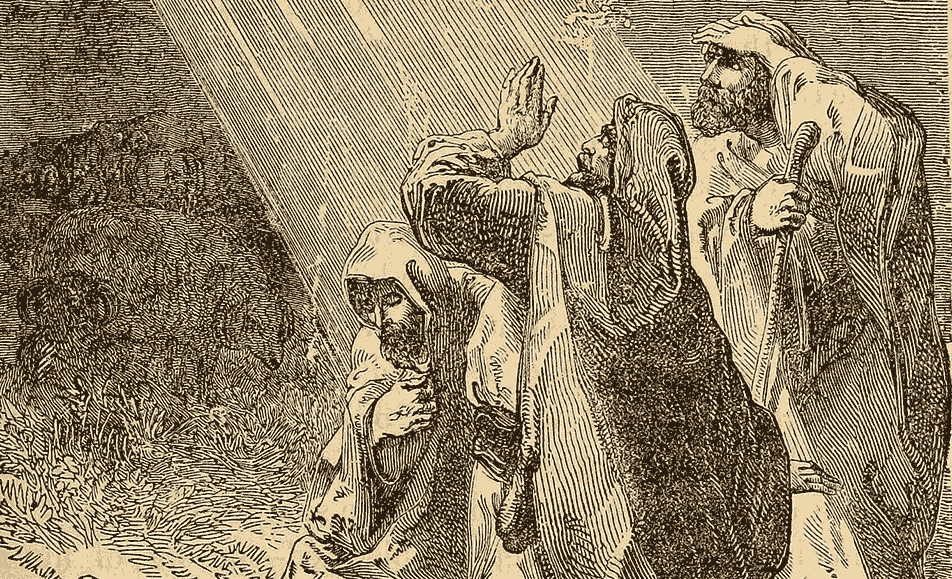
The account becomes more complex when we recognize that there can be fictions within a fiction. Famously, Hamlet contains a play within a play. Let us call the actor who plays the king in the play within the play, Adam. If I say that ‘Adam is a king,’ I say something false, because Adam doesn’t exist, and you can’t be a king if you don’t exist. Even relative to Shakespeare’s fiction, I have said something false, because Adam isn’t a King, he’s an actor. But, relative to the fiction within the fiction, I have said something true. Theoretically, there is no limit to the number of times we can iterate this maneuver. There can be fictions within fictions within fictions.
of vat that exists beyond the horizon of our experience. We might think that we’re talking meaningfully, when we talk about the world that lies beyond the horizons of human experience, but, perhaps we’re under some sort of delusion. Perhaps our words don’t have the power to reach out that far. Thus, even if God is the author of reality, in some way comparable to Shakespeare’s authorship of Hamlet, there is a sense in which we couldn’t really talk meaningfully about it. So, a lot of this blog, has actually been nonsense, as it’s tried to talk about worlds above our own, so to speak. But, the hope is that, as with Wittgenstein’s Tractatus, the nonsense is, somehow, illuminating.
[1] Evans, G., The Varieties of Reference, Oxford: Oxford University Press, 1982, §§10.2-10.4; and Walton, K., ‘Pictures and Make-Believe,’ Philosophical Review, 1973, vol. 82, pp. 283-319, and his ‘Fearing Fictions,’ Journal of Philosophy, 1978, vol. 75, pp. 5-27.
[2] Cf. Mei Hashiloach in parshat Miketz.
[3] See section VI of R. Hefter’s as yet unpublished article on the Determinism of R. Mordechai Leiner – in that paper, the reading that I present of the Izbicer’s worldview is very well butrussed in the relevant texts.
[4] See his comments on Leviticus 12:2, in volume 1 of the Mei Hashiloach.
[5] I owe this turn of phrase to R. Hefter.




Looks great Sam
Look forward to reading it
Dani
Thanks for this post. Two points for now:
1. It would be helpful, at least for me, to have an argument for the incompatibility of foreknowledge and free will set out, and then to see which premise exactly the Izbicer would be denying.
2. "Likewise, according to the Izbicer, God imagines us to be free, and that’s what it means for us to be free."
The freedom of Eve, say, would then seem to amount to the following: God has a mental imagine of Eve eating the forbidden fruit, and God labels that image ‘Eve eats the forbidden fruit freely’. So God has determined things in imagining them, but Eve is nonetheless free. Presto! No problem!
But that won’t work. What it means for us to be free is for us to have the ability to perform some action and the ability not to perform that action. God could imagine and create us that way, and maybe his imagining us that way is his creating us that way. But the original problem about foreknowledge and freedom is not answered by pointing that out. We still need to explain how the foreknowledge is compatible with the ability.
Thanks Tyron,
I really do think that there's a solution to the problem here, even if one doesn't like the metaphysics that underlies it. So, I appreciate your comment because it forces me to be clearer.
The problem can be stated in the following six propositions:
1. A being with a free will often has the choice between two mutually exclusive actions, action x and action y, at some time, t. In fact, it is constitutive of free will to be able to choose between alternative courses of action.
2. God is omniscient, and therefore knows that I will chose to perform, say, action x at time t.
3. Knowledge is factive, which is to say that it’s either a relation between a mind and a fact, or at least, a relation between a mind and a true proposition; a proposition made true by a fact. Knowledge is, therefore, always accompanied by the existence of a fact.
4. Given 3, if God knows that I will perform action x at time t, then it is a fact that I will perform action x at time t.
5. If it is a fact that I will perform action x at time t, then I cannot choose to perform action y at the same time.
6. Therefore, I am not a free being with control over the course of my own life. Given any choice, I am always bound to act in the way that God already knows that I will act. There are no real alternatives for me to choose between because there is already a fact as to which of the alternatives will be chosen.
To be continued…
Here, as I understand it, is the Izbicer's solution:
You say that, 'What it means for us to be free is for us to have the ability to perform some action and the ability not to perform that action.'
Now, utilising your definition, let's take the sentence: Hamlet is free to challenge his uncle. You take that sentence to mean 'Hamlet has the ablility to perform the action of challenging his uncle, and he has the ability not to perform that action.' Let's call this sentence, about Hamlet, S.
Is S true? Well, as with many sentences, we can't tell you whether it's true without knowing more about the context of utterance.
If I said S in a philosophy class, my utterance would most likely be false. Hamlet doesn't have abilities of his own. He doesn't exist as a real person. And, in whatever sense he could be said to exist, as a character, he doesn't really have abilities to act as he wishes: he just does whatever Shakespeare decides for him to do.
But, if I utter S in an English literature class, then I really have said something true. In fact, if I deny S, in that context, then I've really missed the whole point of the drama. The dramatic tension of the play resides in the fact that it's all up to Hamlet.
With all of this in mind, let me restate the problem that we're trying to solve:
There are two sentences that we want to utter, but they can't both be true.
S1: To be free is to have the ability to chose to perform an action, or to chose to refrain from performing it; and thus, to be free demands that our future is open and up to us.
S2: God already knows what we're going to do [which implies that future is neither open, nor up to us].
Normally, this problem either forces us to deny one of the sentences, or to ammend one or both of them.
The Izbicer's solution is to say that they are both true, but only relative to different discources.
S1 is true. We are free. Eve was free. And her freedom means whatever you want it to mean. But, S1 is only true relative to the story that we live in, so to speak. But that's still a truth. And, truths relative to the story that we live in are generally the only truths that really bother us, because it's the story that WE LIVE in!
S2 is also true, but only relative to a different discourse entirely. Relative to God's reality, so to speak, S2 is true, and S1 is false.
So, that's what I take to be his solution.
To be continued…
But, the really sophisticated part of the picture is that, God has written Himself into the story as a character, so to speak.
We must all be familiar with post-modern novels in which the author jumps into the story to meet his characters – Milan Kundera and Kurt Vonnegurt are two authors who have done this.
So just as it is false that Kundera met his characters, because his characters don't exist, it's also true, relative to the story, that he did meet his characters.
Likewise, in the story that God spins, He meets his characters, but he doesn't interefere with or determine their future actions.
So we have two new sentences:
S3: God doesn't determine our future actions in any way.
S4: God does determine our future actions, as the author of the story that we live in.
The two are incompatible, but only if read on the same semantic level.
S3 is true relative to the story that we live in, and false relative to God's reality.
S4 is false relative to the story that we live in – God didn't do anything to get in the way of Eve's free decision, which was free in exactly the way that you understand the word 'free' – but, it is true relative to God's reality.
Something about this solution seems like a fiddle. But I'm pretty convinced that, from a logical point of view, it works. It solves the problem, whether or not we like the metaphysics of God as author of the world.
Sorry, S1 above should read:
S1: To be free is to have the ability to chose to perform an action, or to chose to refrain from performing it; and thus, to be free demands that our future is open and up to us – AND WE ARE FREE!
This is definitely very interesting Sam, but I'm not sure I see how the solution is supposed to go exactly. Perhaps I can express my confusion this way: suppose that in ordinary contexts, the sentence 'God doesn't determine our actions in any way' expresses the proposition that would be most perspicuously expressed by the sentence, 'According to the story God imagines, God doesn't determine our actions in any way' [I prefer to think in terms of appending a modal operator to the sentence rather than thinking of truth-relative-to-a-story, just because the only way I can make sense of the latter is by the former, so I'd rather just think about it in terms of the former straightaway. Tell me if you think this is where I'm going wrong.]. Name that proposition 'P'. Now, since we seem to be able to speak not only WITHIN the story, but from OUTSIDE the story (as in when we utter S2 or S4), it seems we can intelligbly ask whether the proposition that would be expressed by the sentence "God doesn't determine our actions in any way" when uttered in the SAME context as S2 or S4 – name that proposition 'P+' – follows from P. Here's the dilemma – if it does (and I take it this is what the Berkeleyan metaphysics is supposed to do for us), then we're back to square one, and the problem re-arises. If not, then I don't see what the point is; we haven't saved our freedom in any way, since all we have is that ACCORDING TO a certain story, we are no determined, but we already knew that! There are plenty of false stories according to which we are true. Please help me see my way through this.
Aaron Segal
V interesting Sam. one question which springs to mind concerns sentences of the form 'God knows that p' where p is some future contingent about my behaviour. You say that the Izbicer is sensitive to the idea that 'it may not be possible for us to talk meaningfully about any sort of reality beyond the world we live in' etc. Might not the answer to the puzzle then not be that there is a semantic ascent, but rather there is no contradiction between sentences S2 and S1 because one of these sentences is strictly speaking meaningless?
Thanks for the reply. I’m still not sure which premises of the argument the Izbicer would dispute. (That can’t be the strongest version of the argument. I’d think that premise 5 is pretty implausible, and hardly needs such a sophisticated response.) Also, I think I see how there can be two contexts in the case of sentences about Hamlet. But I can’t draw the analogy here; I can’t see what this amounts to in the case at hand. But that might just be my problem, and no fault of the solution.
In my comment, replace "There are plenty of false stories according to which we are true." with "There are plenty of false stories according to which we are not determined." Sorry.
Aaron Segal
To Ty:
I don't think the nature of the Izbicer's solution is going to depend very much on which version of the problem-creating argument one chooses. So choose Pike's or some improved version thereof, or whatever is your favorite (if you have one – you may think, as I'm inclined to, that there is no good argument, but I think we should let the Izbicer at least have a target to work with). I assume the move that the Izbicer would be making – if I'm understanding Sam's suggestion correctly – is not to deny one of the premises but to say that there is an equivocation going on, and thus the argument is invalid. The equivocation will be roughly between what a certain sentence (that appears in a standard statement of the argument) means IN the story/God's thoughts, and what it means in a "neutral" context. Of course, the exact nature of the equivocation will depend on how one formulates the argument, but I'm not sure how much hinges on it. [That's not to say that one couldn't come up with a version of the argument -in response to the Izbicer – that doesn't equivocate, by making explicit certain synonomy claims, but then I assume he would be able to easily locate the premise that he wants to deny.]
Aaron: I’m not sure whether we’re right to think in terms of modal operators, rather than truth-relative-to-a-story, and I think you’ll see why, as I try to help you see the sense in which there really might be a solution here.
So, once again thanks, because I’m being forced to bring out the salient parts of the solution more clearly. I think there might be something worth publishing beneath all of this, but I need to sharpen the philosophy. This is really helping me.
On the view I’m putting forward on the Izbicer’s behalf, we’re wrong to think in terms of propositions. The meaning of a sentence is not a proposition. Meanings of sentences are given by a Davidsonian style meaning-theory for the language at hand.
Not only is there no such thing as a proposition, there’s also no such thing as truth-simpliciter. Truth is always relative to a language, and, perhaps to a certain discourse (in the case of a story, or within a make-believe game, for instance).
So, we have nothing to fear in terms of the problem rearing its head again at the level of propositions, because there are no propositions. All we have are sentences. S1 and S3 are true-relative-to-the-story-that-we-live-in. S2 and S4 are true relative to God’s language and relative to His reality, as it were.
Eli is right to point out that in fact, S2 and S4 are meaningless in our language, and that we can’t really understand the language in which they’re true. But, we supposed to have some sort of intuitive grasp of the idea that there are perspectives/discourses broader than our own, relative to which sentences like S2 and S4 would be true, if only we could really understand them! And though they’re meaningless to us, they might be meaningless in the way that Wittgenstein thought that his Tractatus was meaningless – meaningless in a somehow illuminating way.
But, we certainly can make the relevant semantic ascent when thinking about Hamlet’s total freedom at one level, and his totally determined state, from another level. This should at least give us some sense of what the solution is supposed to be, even if the real content of the solution lies beyond our grasp. All we can really understand are sentences like S1 and S3, which are true.
The difference between stories that humans spin, and the one story that God has spun, is that God’s storytelling creates physical reality. God’s story is privileged. That is part of the work done by the Berkelian metaphysics. So, whilst it’s true that "There are plenty of false stories according to which we are not determined," only one of those stories was spun by God Himself, which explains what gives it its metaphysical clout! Ultimately, to exist, is to be thought up by God. That’s why Hamlet doesn’t really exist, and we do. The whole hierarchy of stories within stories, ends with God, the unauthored author.
Ty, has this made things clearer, or more murky? I need to learn how to put all of this properly!! And, Aaron, you’re right. The response to the problem is to say that none of the premises are false per-se, but that there is an equivocation between semantic levels that gives rise to the appearance of a paradox.